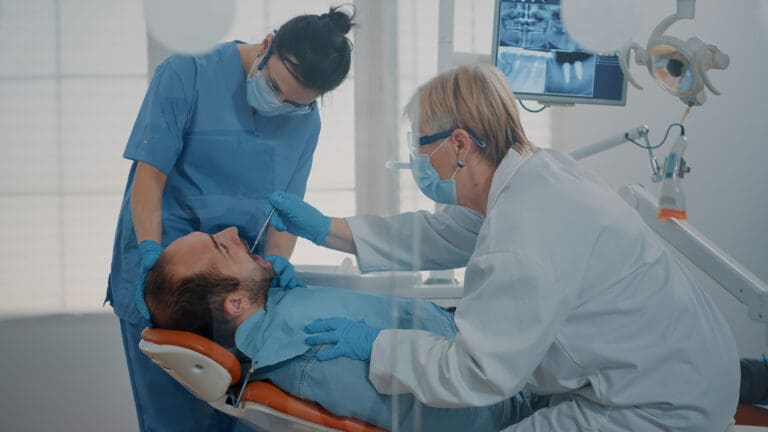
Emergency Dental Care: Handling Urgent Dental Issues
Introduction
Dental emergencies can happen at any time, whether due to an accident, sudden pain, or an unexpected issue with a restoration. Knowing how to handle a dental emergency can make a difference in comfort, outcomes, and recovery time. This guide covers common dental emergencies, immediate steps to take, and the importance of seeking prompt care.
What Qualifies as a Dental Emergency?
Dental emergencies include any issue that requires immediate attention to relieve pain, stop bleeding, or save a tooth. Here are common types of dental emergencies:
- Severe Toothache: Persistent, intense pain that doesn’t subside with over-the-counter pain relief may indicate infection or abscess.
- Knocked-Out Tooth: An avulsed (knocked-out) tooth requires immediate care for the best chance of reattachment.
- Chipped, Cracked, or Broken Tooth: Trauma that damages the tooth structure should be treated promptly to prevent further damage.
- Lost Filling or Crown: A missing restoration can expose the tooth to bacteria and sensitivity, requiring a replacement.
Immediate Steps for Common Dental Emergencies
Taking the right steps immediately after a dental emergency can help alleviate pain and protect the affected tooth. Here’s what to do:
- For Toothaches: Rinse with warm salt water and apply a cold compress to the cheek to reduce swelling. Avoid placing aspirin on the tooth or gums.
- For Knocked-Out Teeth: Rinse the tooth gently with water, being careful not to remove any tissue. Place the tooth back in its socket if possible or store it in milk, and see a dentist immediately.
- For Broken or Chipped Teeth: Save any pieces, rinse your mouth, and apply gauze if there’s bleeding. A cold compress can reduce swelling.
- For Lost Fillings or Crowns: Cover the exposed area with dental cement or sugarless gum as a temporary fix, and contact your dentist promptly.
Why Prompt Care is Essential
Timely dental care for emergencies can prevent complications, save teeth, and reduce the risk of further damage. Here’s why it’s important:
- Preventing Infection: Quick treatment minimizes the risk of infection, especially if the tooth’s pulp or gum tissue is exposed.
- Saving the Tooth: Immediate care can improve the chances of saving a knocked-out or severely damaged tooth.
- Pain Management: Emergency care provides immediate relief from severe pain, helping patients avoid discomfort and complications.
What to Expect During an Emergency Dental Appointment
Knowing what to expect during an emergency appointment can help patients feel more comfortable and prepared:
- Examination and Imaging: The dentist assesses the affected area and may take X-rays to determine the extent of damage or infection.
- Immediate Treatment Options: Based on the issue, the dentist provides immediate care, which could include reattaching a tooth, placing a temporary crown, or prescribing medication.
- Follow-Up Care: In some cases, follow-up visits may be needed for further treatment, such as a root canal, crown placement, or additional repairs.
Preventive Tips to Avoid Dental Emergencies
While some dental emergencies are unavoidable, taking preventive measures can reduce the risk:
- Wear a Mouthguard: Protect your teeth during sports or high-risk activities to avoid injury.
- Avoid Chewing Hard Objects: Refrain from chewing on ice, hard candy, or other hard items that can crack or chip teeth.
- Maintain Good Oral Hygiene: Keeping teeth and gums healthy reduces the risk of decay, which can lead to emergency situations.
- Schedule Regular Check-Ups: Routine visits help catch issues early, preventing them from becoming emergencies.

